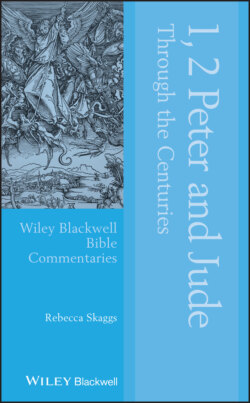Читать книгу 1, 2 Peter and Jude Through the Centuries - Rebecca Skaggs - Страница 36
Other Interpretations
ОглавлениеJohn Wesley, on the other hand, understands Peter’s notion of suffering as general distress experienced in daily life. In a sermon he gave on several occasions, “Heaviness Through Manifold Temptations” (Sermon 47, WesleyCenterOnline: ccel.org), he makes an important distinction between this kind of suffering (lupethentes, literally “distress” or “grief”) and “darkness” which is a result of sin. He interprets this grief as depression or “heaviness” of spirit which is experienced by believers but is not the same as the “darkness” of the sinful state. He points out here that Peter’s readers are obviously believers, not sinners, being “kept” through these trials (v.7), while they possess a “living faith” (v.9), have multiplied peace and grace (v.3), and are rejoicing in the glory of God (v.8). It is clear that believers are undergoing distress. In fact, Wesley feels that, except in some unusual cases, it is actually necessary for believers to endure trials for faith to increase and to confirm the hope of glory.
Later, existential philosopher Søren Kierkegaard (1813–1855) has a unique perspective. In relation to being “tried in the oven” (v.7), he explains that suffering results in strength; at first, we hold on to the hope that it may be avoided, but ultimately the real strength only comes when we realize that no help is coming:
there is nothing cruel about this seriousness, which deals gently with a man and never tempts him beyond his capacity to bear. He has seen what he is going to suffer, he has seen what this love will cost him, “But maybe,” says he, “better times will come, help will yet come, and all may yet be well.” So he does not let go the picture, but advances tranquilly into the suffering whereto he is led. For governance is love; in its indulgence towards this ardent youth it has not the heart to let him understand at once that here there awaits him a disappointment, that he is reckoning without his host. But this he could not yet endure to understand, and therefore (oh, infinite solicitude of love!) he is not able to understand it. He holds out, and by thus holding out he is strengthened, as one is strengthened by suffering.” (Training, 1978: 189)
